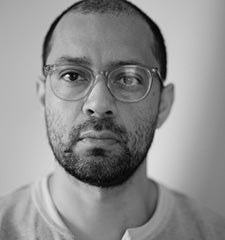For more information:
Email UsLearning Objectives
- Describe the purpose and structure of collaboration agreements for building and sustaining highly functional scientific research teams.
- Identify practical approaches for using collaboration agreements in teams.
- Recognize how collaboration agreements can promote innovation, productivity, and a supportive culture of transparent and inclusive communication.
Highly functional scientific research teams that embrace a culture of communication grounded in transparency and inclusivity helps promote collaborative conditions that bolster innovation and productivity. Since transparent and inclusive communication is an ongoing process, developing scaffolding to effectively engage in the dynamic collaborative process is important. This one-hour webinar will explore the purpose and structure of creating collaboration agreements for working together in team settings. Participants will look at practical approaches from the Collaboration Agreement Template, developed by L. Michelle Bennett, PhD, Michael O’Rourke, PhD, and Edgar Cardenas, PhD, and how it is used in teams. Through the session, participants will learn strategies for developing a shared understanding for the nature of the collaboration, establishing expectations, guiding team reflections, avoiding potential conflicts, and facilitating meaningful dialogue to advance team science and collaborative research efforts.
An additional webinar on feedback will take place prior to this session on collaboration agreements. Both sessions are part of the series on Boundary-Crossing Skills for Research Careers.
Session dates
August 29, 2024 | 12:00 – 1:00pm EDT
Meet the Presenter
 Edgar Cardenas, PhD, is co-founder and associate director of the ToolBox Dialogue Initiative Center (TDIC) at Michigan State University. His work focuses on structured dialogue, social creativity, and small group dynamics. Cardenas has worked with multiple universities and federal organizations, including the National Science Foundation (NSF), National Aeronautics and Space Administration (NASA), National Oceanic and Atmospheric Administration, Department of Energy, and Department Of Defense. He is a team science curriculum lead for the NSF Convergence Accelerator program and has been working with them since its inception in 2019. Under the Convergence Accelerator, he has worked with more than 200 teams composed of scientists, humanists, and private industry partners, focused on scaling solutions for complex societal problems. In addition to his work at TDIC, he is an executive producer for the podcast, Living Dialogs, which focuses on open-ended conversations about living architecture with practitioners, scholars, and researchers in the field. He holds a PhD in sustainability and a MA in industrial/organizational psychology.
Edgar Cardenas, PhD, is co-founder and associate director of the ToolBox Dialogue Initiative Center (TDIC) at Michigan State University. His work focuses on structured dialogue, social creativity, and small group dynamics. Cardenas has worked with multiple universities and federal organizations, including the National Science Foundation (NSF), National Aeronautics and Space Administration (NASA), National Oceanic and Atmospheric Administration, Department of Energy, and Department Of Defense. He is a team science curriculum lead for the NSF Convergence Accelerator program and has been working with them since its inception in 2019. Under the Convergence Accelerator, he has worked with more than 200 teams composed of scientists, humanists, and private industry partners, focused on scaling solutions for complex societal problems. In addition to his work at TDIC, he is an executive producer for the podcast, Living Dialogs, which focuses on open-ended conversations about living architecture with practitioners, scholars, and researchers in the field. He holds a PhD in sustainability and a MA in industrial/organizational psychology.
Register
The application process is closed. Please check back for future opportunities.

